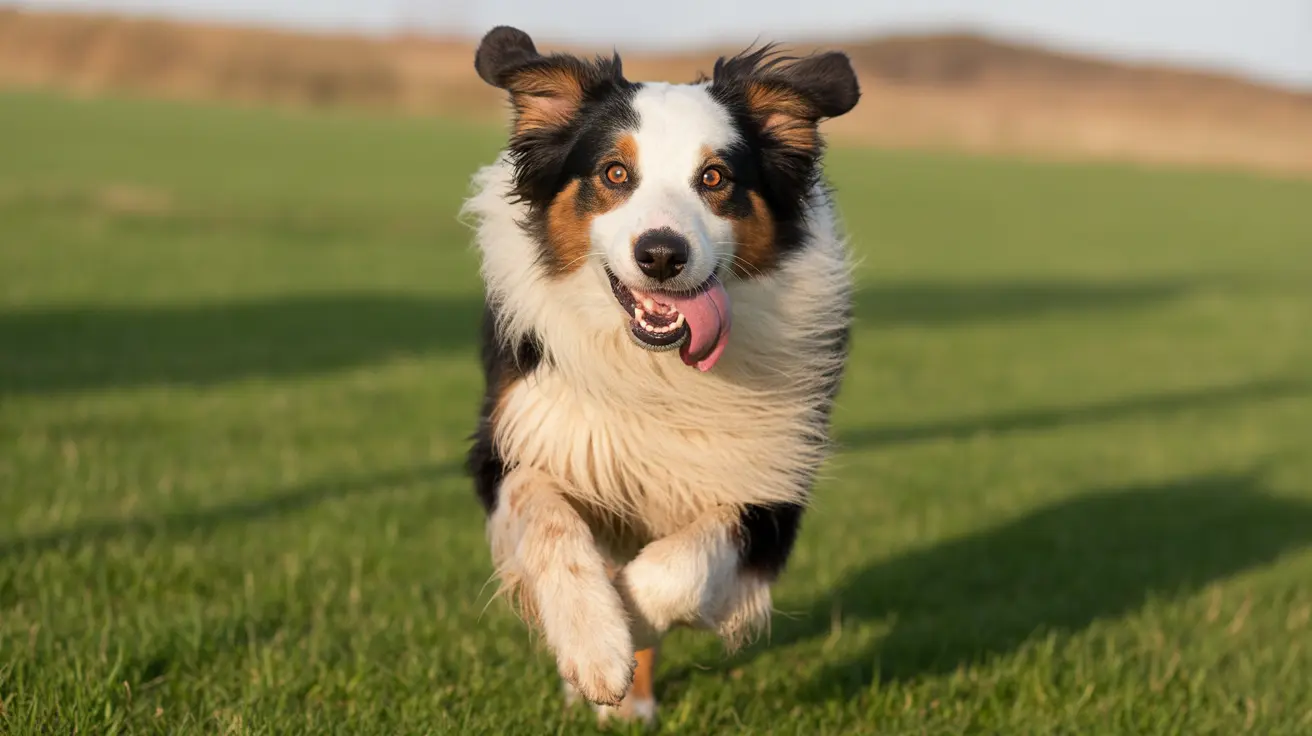When you notice your dog's tongue sticking out accompanied by heavy breathing, it's natural to feel concerned. While this behavior can be normal in many situations, understanding the difference between typical panting and signs of distress is crucial for your pet's wellbeing.
In this comprehensive guide, we'll explore the various causes of heavy breathing and tongue protrusion in dogs, help you identify emergency situations, and provide clear guidance on when to seek veterinary care.
Normal Panting vs. Concerning Symptoms
Dogs naturally pant with their tongues out to regulate body temperature and cool down. A healthy dog typically breathes 10-30 times per minute at rest, with the rate increasing during exercise or excitement. However, excessive or unusual breathing patterns may signal underlying issues.
Signs that distinguish normal panting from concerning breathing include:
- Breathing rate that doesn't slow down after rest
- Unusual sounds like wheezing or rasping
- Excessive drooling
- Blue-tinged or very pale gums
- Visible struggle to breathe
Common Causes of Heavy Breathing with Tongue Out
Heat-Related Issues
One of the most common reasons for heavy breathing and tongue protrusion is heat exposure. Dogs use panting as their primary cooling mechanism, but excessive heat can lead to potentially dangerous conditions:
- Mild overheating
- Heat exhaustion
- Heat stroke (a medical emergency)
Medical Conditions
Several health issues can cause labored breathing and extended tongue posture:
- Respiratory infections
- Heart disease
- Laryngeal paralysis
- Brachycephalic airway syndrome
- Pain or discomfort
- Anxiety or stress
Emergency Situations and When to Act
Certain symptoms warrant immediate veterinary attention:
- Inability to catch breath
- Blue or purple-tinted tongue
- Collapse or extreme weakness
- Excessive drooling with breathing difficulty
- Signs of choking or airway obstruction
Prevention and Management
To help prevent breathing difficulties in your dog:
- Avoid exercise during peak heat hours
- Provide constant access to fresh water
- Monitor activity levels in brachycephalic breeds
- Keep hazardous objects out of reach
- Maintain regular veterinary check-ups
Frequently Asked Questions
Why does my dog stick out his tongue and breathe heavily when he's not hot or exercising?
If your dog is breathing heavily without obvious triggers like heat or exercise, it could indicate underlying medical issues such as heart disease, respiratory problems, or pain. Always consult your veterinarian if you notice unusual breathing patterns.
How do I know if my dog's heavy panting is a sign of choking or something serious?
Signs of choking include panic behavior, pawing at the mouth, gagging sounds, and inability to breathe properly. Serious breathing issues may also involve blue-tinted gums, collapse, or extreme distress. These situations require immediate emergency care.
What are the most common causes of labored breathing and tongue out in dogs?
Common causes include overheating, anxiety, pain, respiratory infections, heart problems, and breed-specific issues (especially in flat-faced breeds). Environmental factors like high temperature and humidity can also contribute.
What should I do if my dog is having trouble breathing with his tongue hanging out?
First, move your dog to a cool, quiet area and assess the situation. If you suspect choking, check for visible obstructions. For severe breathing difficulty, seek emergency veterinary care immediately. For mild cases, monitor closely and contact your vet for guidance.
When should I take my dog to the vet for heavy panting and tongue sticking out?
Seek veterinary care if the breathing difficulty persists after rest, is accompanied by other symptoms like coughing or lethargy, or if your dog shows signs of distress. Immediate emergency care is needed for blue gums, collapse, or obvious breathing struggle.
Conclusion
While dogs naturally pant with their tongues out, recognizing the difference between normal behavior and potential health issues is essential for your pet's safety. When in doubt, always consult with your veterinarian, as early intervention can prevent serious complications and ensure your dog's wellbeing.






